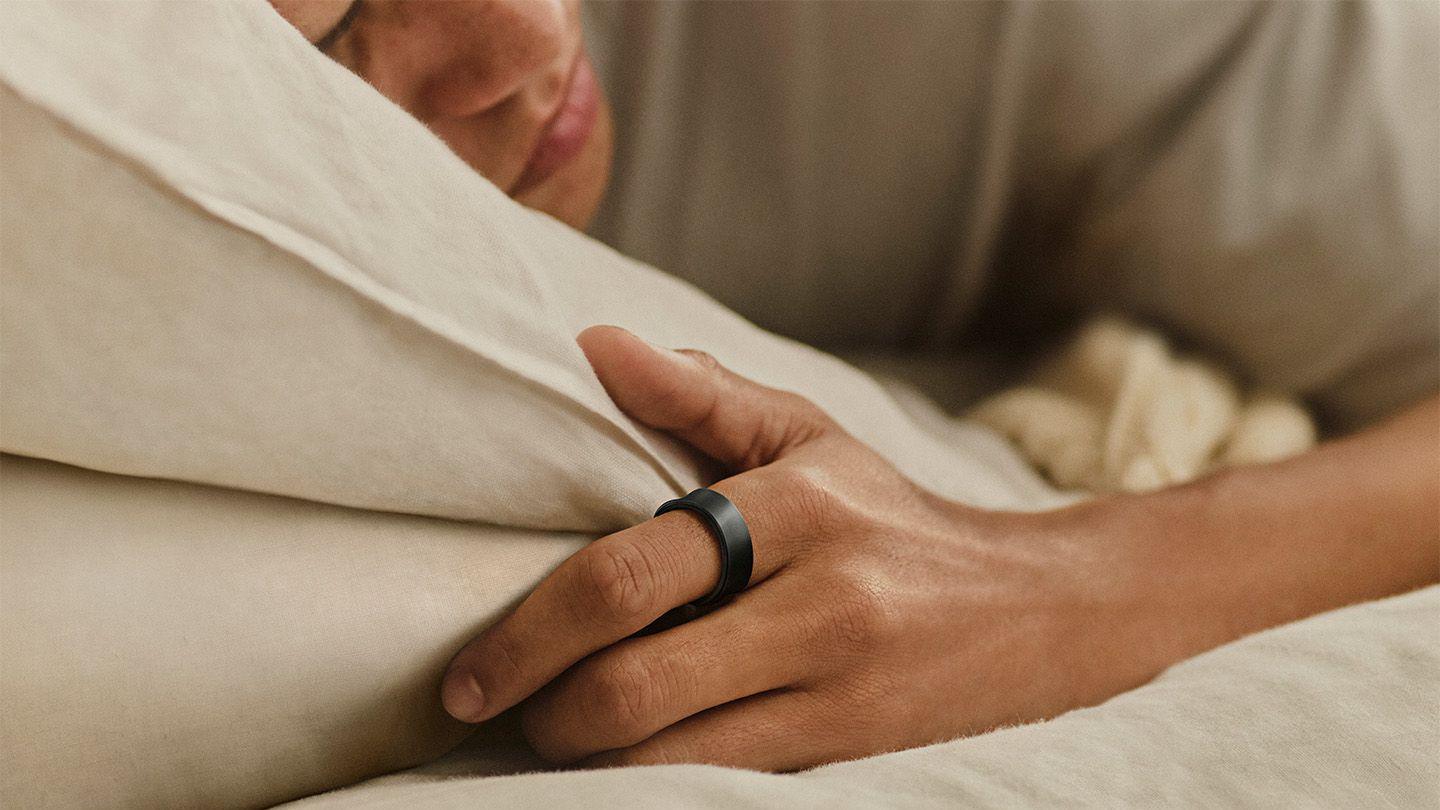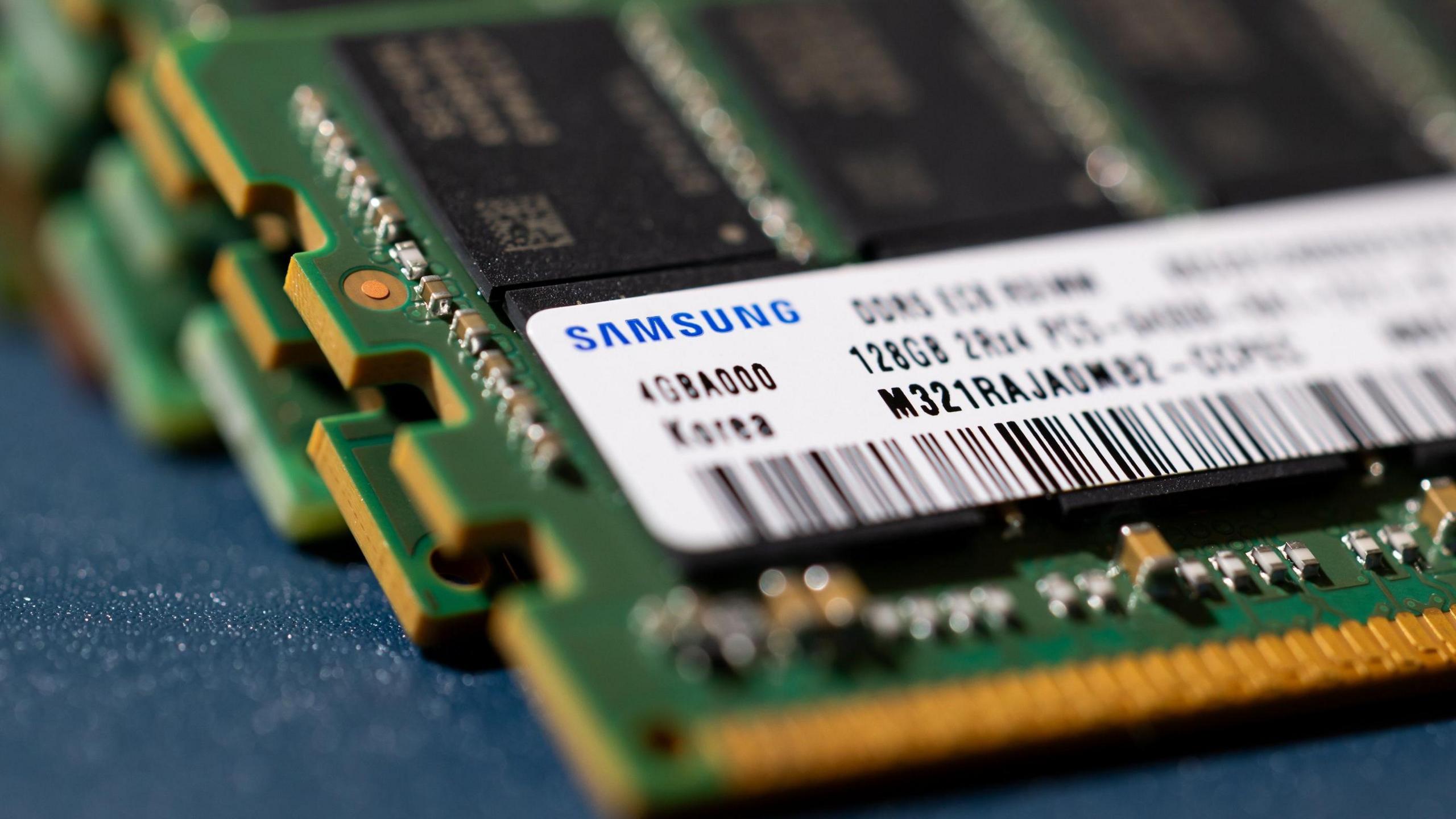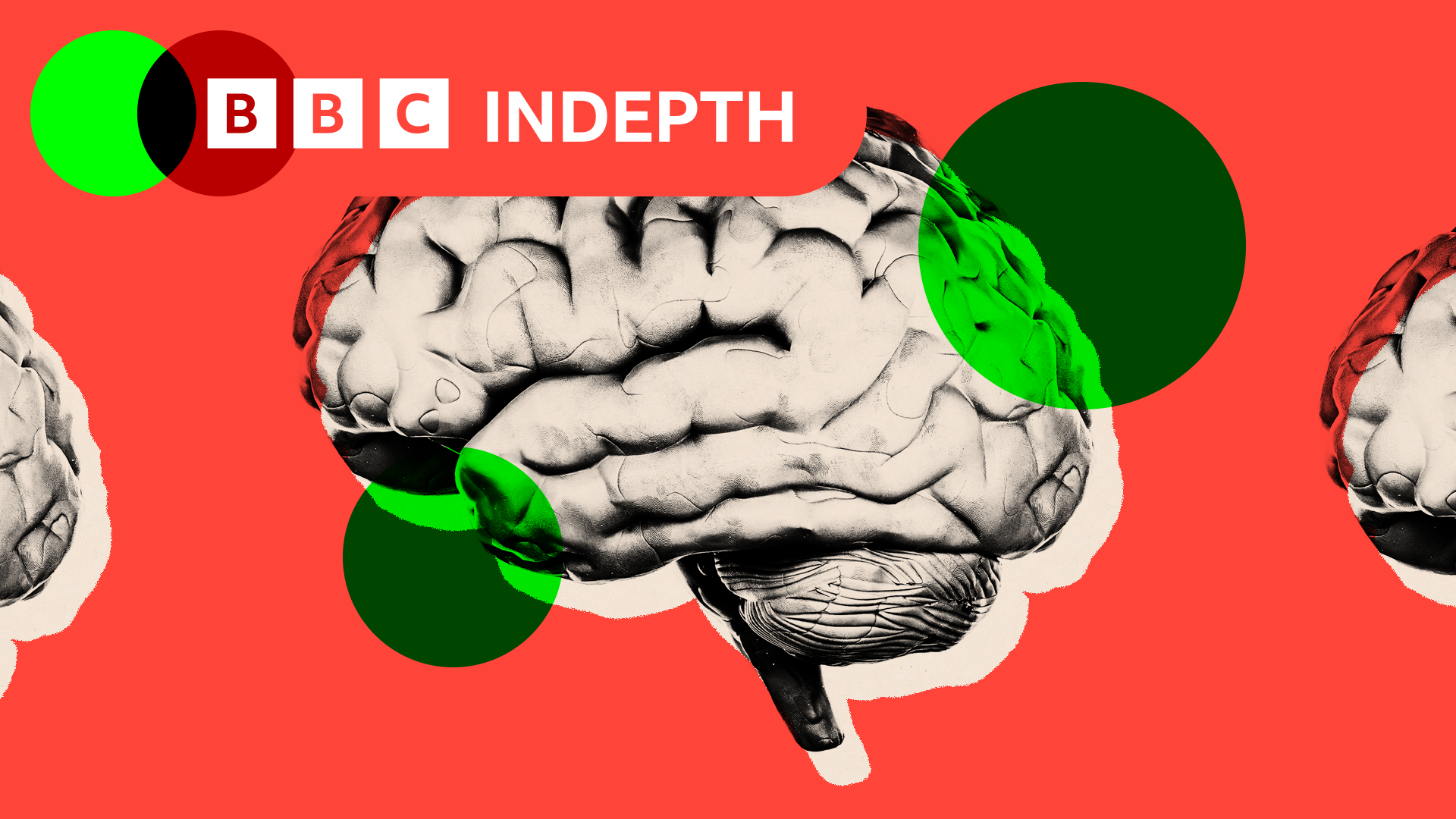Samsung becomes first tech giant to launch a smart ring

The company says its ring can be used for sleep tracking
- Published
Samsung is hoping to lure fitness and health-tracking technology lovers with its newest wearable device - the Galaxy Ring.
It launched the device at its Galaxy Unpacked event on Wednesday as the latest addition to its ecosystem of devices it says it is "supercharging" with artificial intelligence (AI).
Smart rings, which use tiny sensors to monitor various health metrics, have up to now been a niche product - though their recent use by the England men's football team made headlines.
It seems Samsung is attempting to change that, becoming the largest tech company yet to enter the smart ring market.
Ben Wood, analyst at CCS Insight, says the product choice is an "interesting bet" for Samsung, with his company estimating that there will be a total global market of around four million smart rings in 2025.
"That is a rounding error when compared with 250 million smartwatches that are also expected to be sold," he told the BBC.
But others suggest Samsung may help make smart rings more mainstream.
"For most consumers, the smart ring from Samsung will be the first contact they will have in the smart ring, and that top of mind awareness makes a huge difference in the long-term," says Francisco Jeronimo, analyst for market research firm IDC.
James Kitto, vice president and head of Samsung's mobile division in the UK & Ireland, heralded the ring's launch as a "huge moment" for the company.
What are smart rings?
Smart rings can track health indicators such as your heart rate, sleep and menstrual cycle.
The market is currently dominated by Finnish health tech firm, Oura.
In recent years the rings have become a fitness tech fashion staple for celebrities such as Kim Kardashian.
With their small size and sleeker appearance, analysts say they could become the successor to smart watches like the Apple Watch and Google Pixel Watch.
Mr Kitto described Samsung's Galaxy Ring as its "smallest and most discrete product yet, offering accurate 24/7 health, wellness and sleep tracking."
Smart watches typically have more sensors than smart rings, enabling them to access and provide a wider range of health data.
But "less intrusive" smart rings can provide a convenient, comfortable and stylish alternative for those who do not want to wear a bulky smart watch, particularly overnight to track their sleep patterns, says Mr Jeronimo.
Samsung says the device will work with Android phones operated by Android 11 or above, providing you have the Samsung Health app. Some Galaxy AI features, such as getting an Energy Score and personalised suggestions based on your data, are only available on a Galaxy device.
Dr Efpraxia Zamani, associate professor of information systems at Durham University, told the BBC that Samsung's Galaxy Ring forming part of a wider ecosystem of products providing insights into users' health and wellbeing may be an "attractive offering" for many consumers.
But she warned that users of products accessing and monitoring health data should remain wary of what data is being collected, how and where it is shared.
"Being part of an ecosystem, it means that data can be collected from the ring, from the watch, from the phone, and then, when put together, this can have even more negative impacts alongside the positive ones," she said.
The collecting of data relating to menstrual cycles has proven controversial in the past.
Last year, the UK's Information Commissioner's Office launched a review of period and fertility tracking apps over data security concerns.
- Published5 July 2024

- Published10 July 2024

- Published10 July 2024
